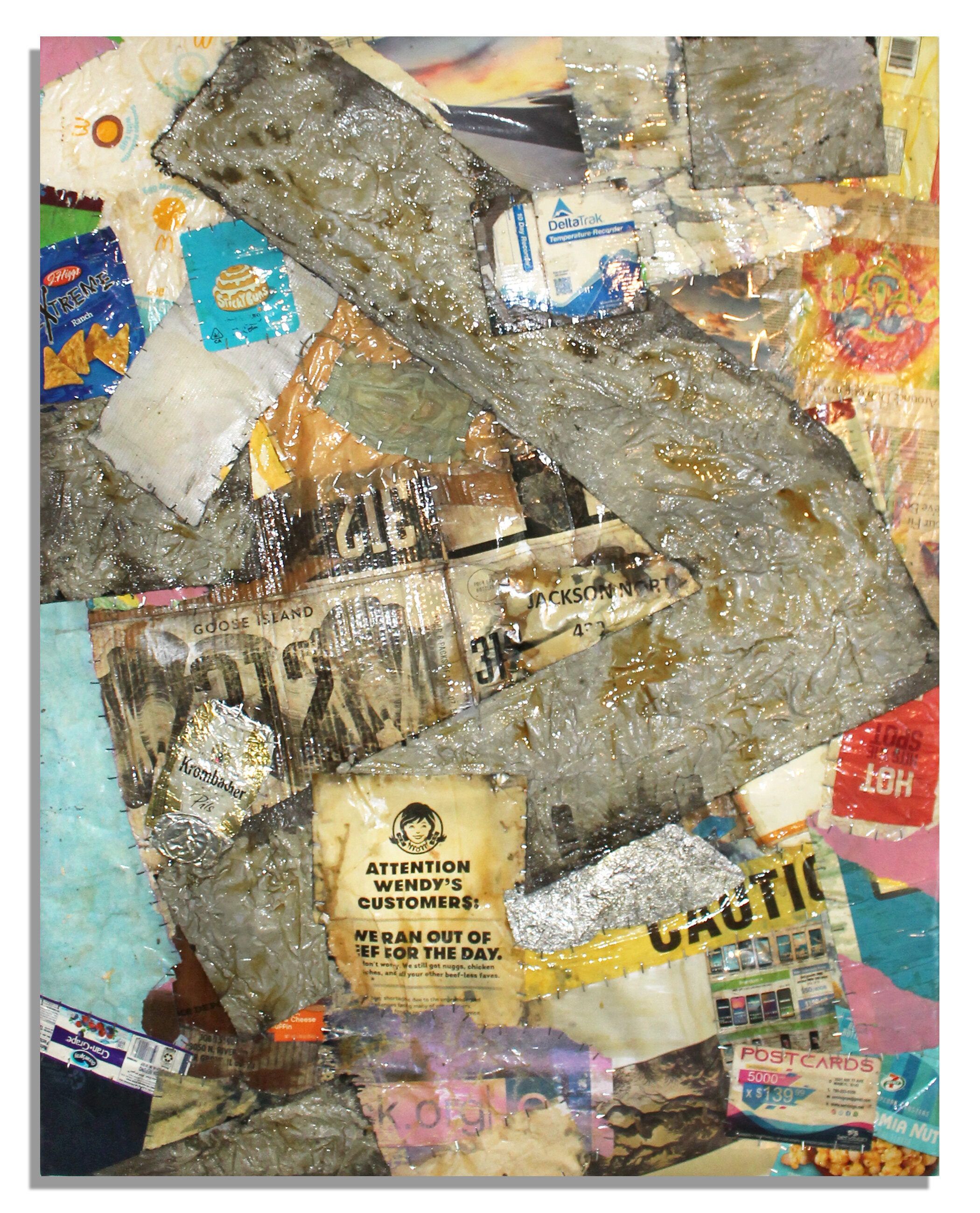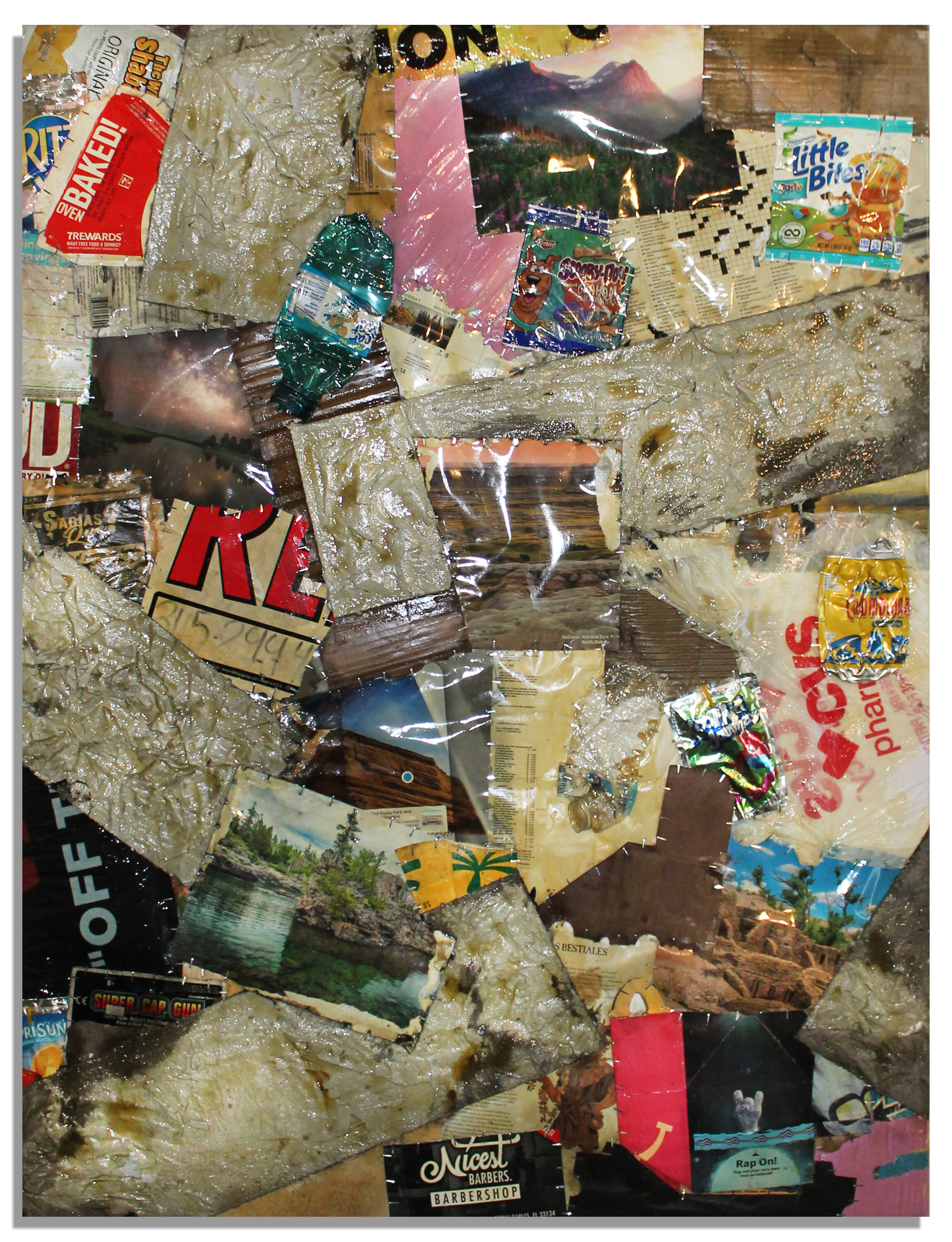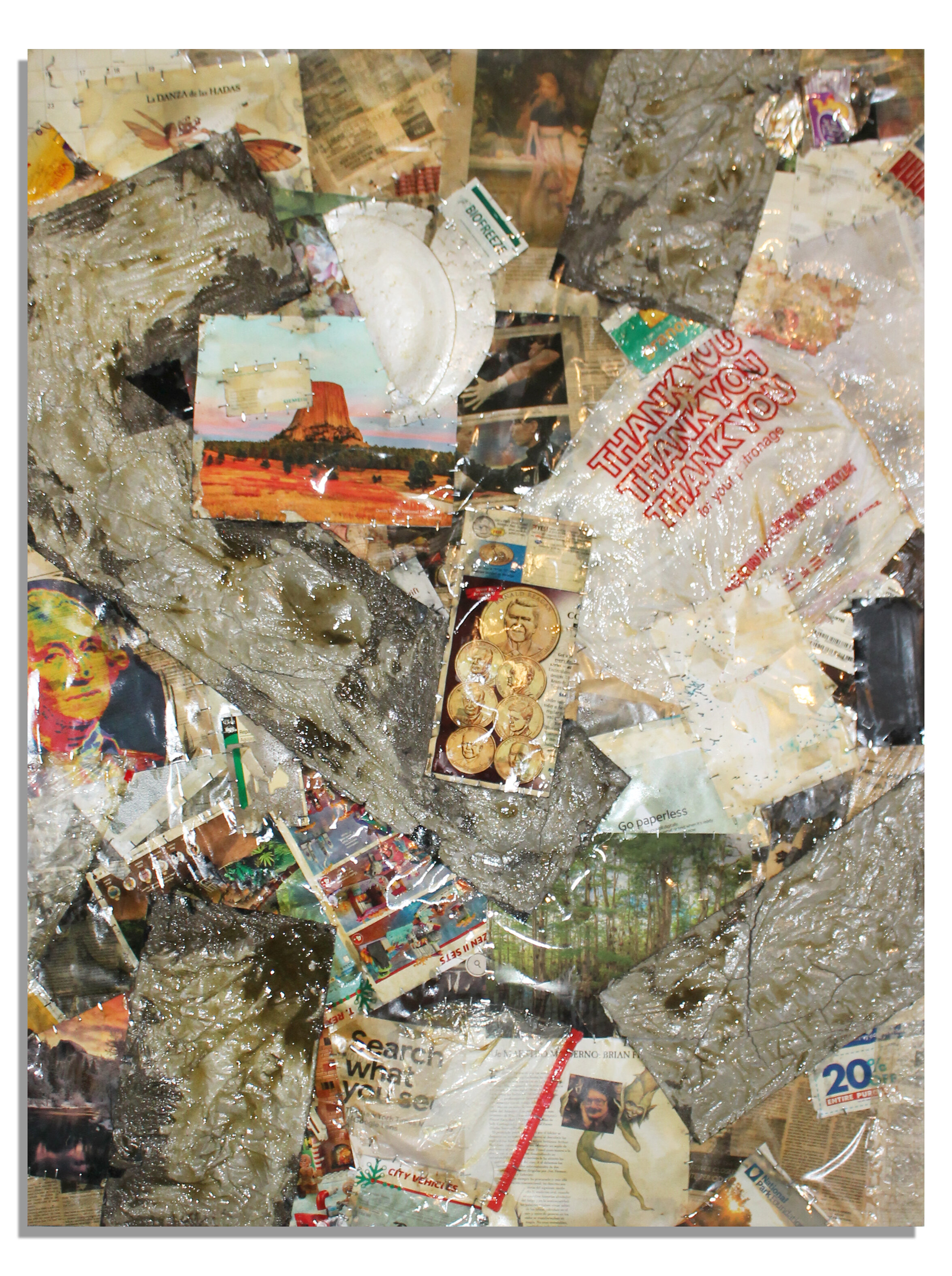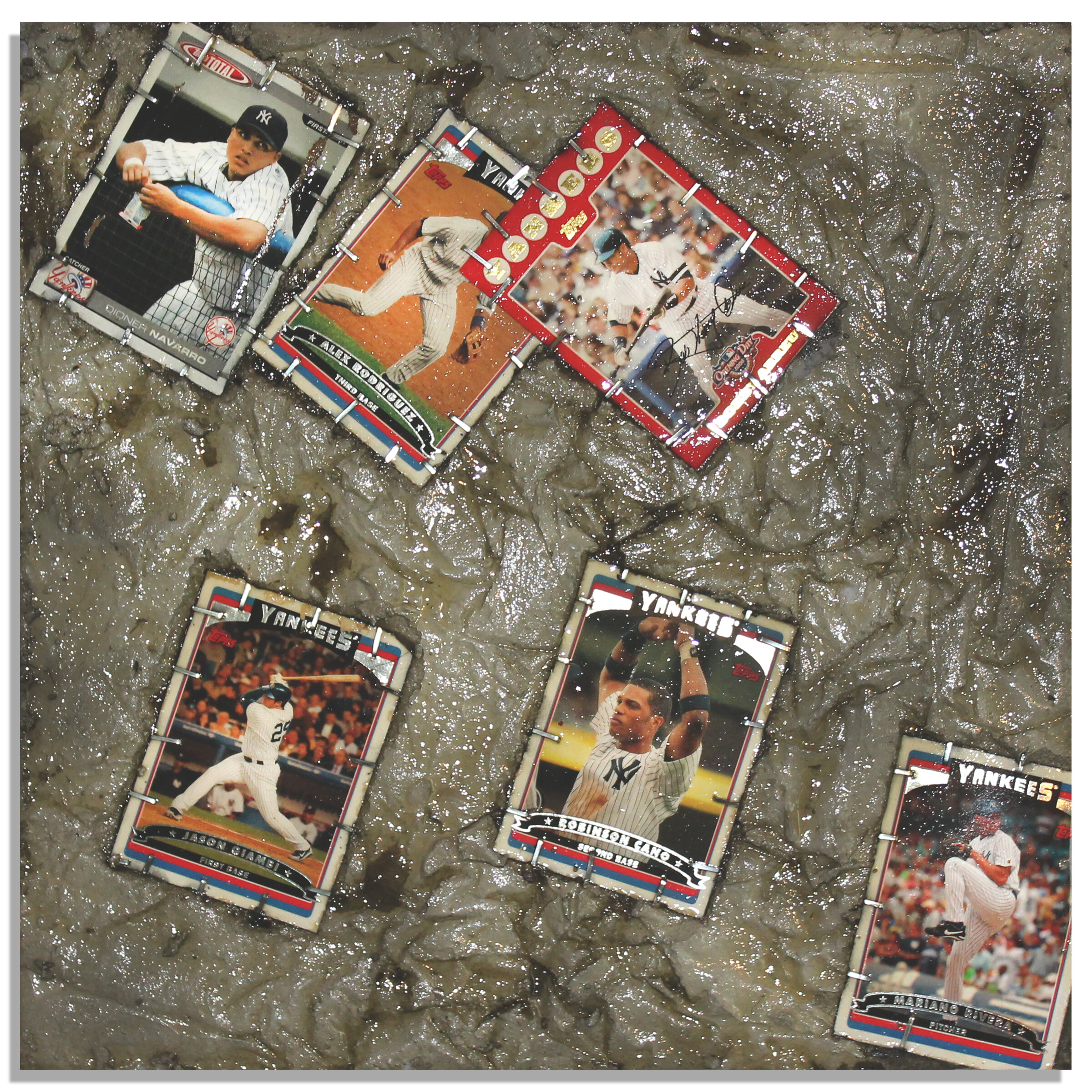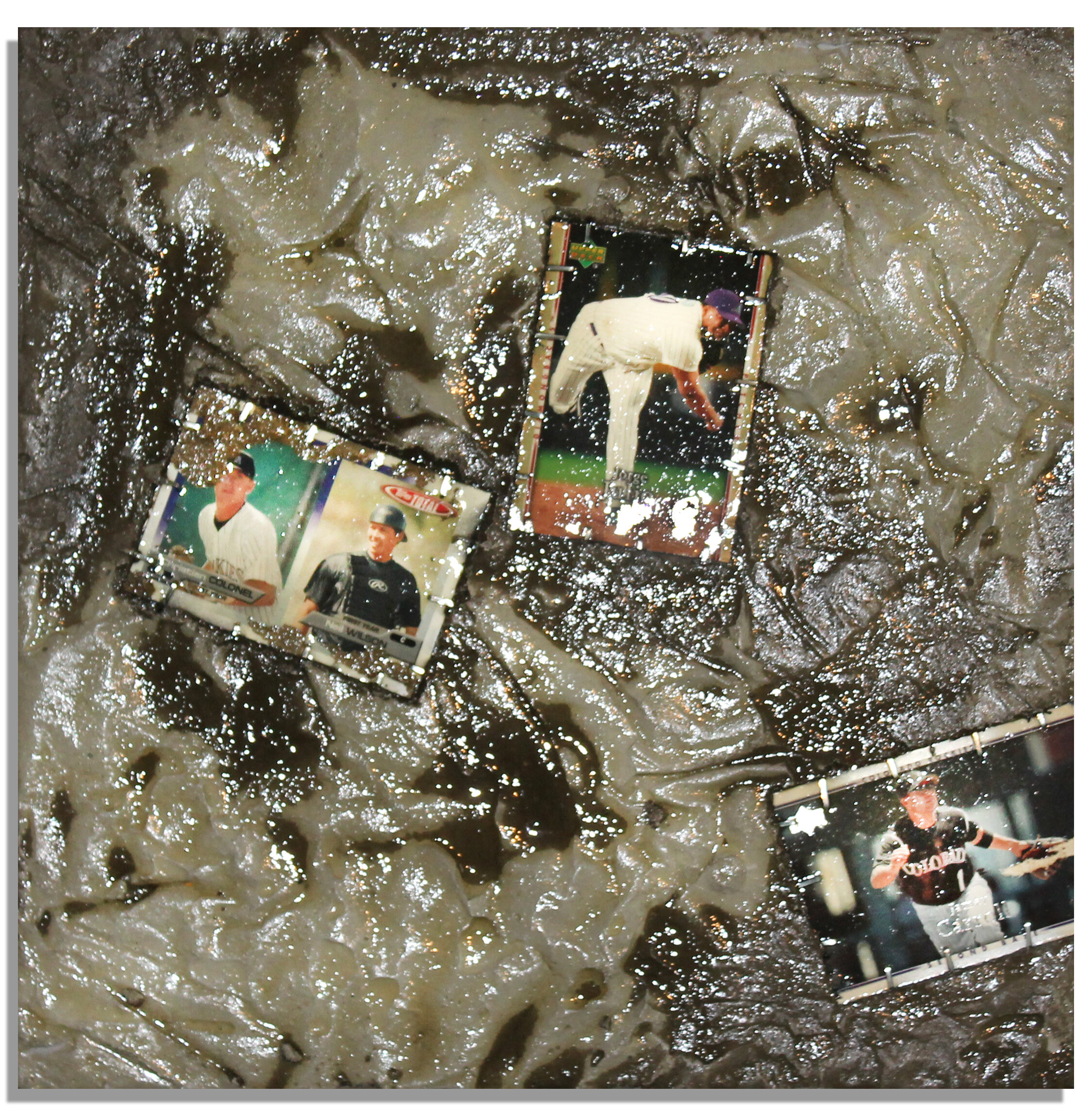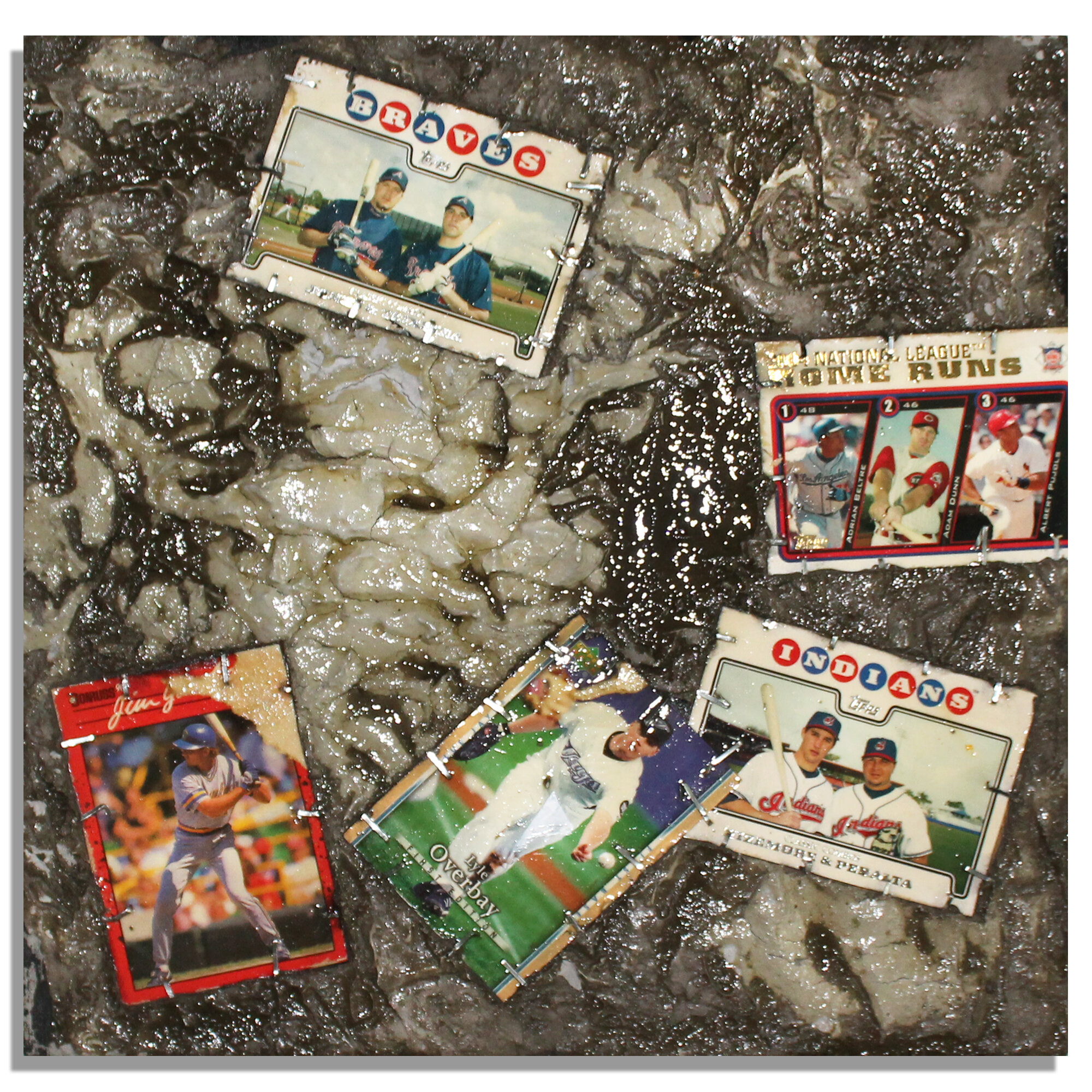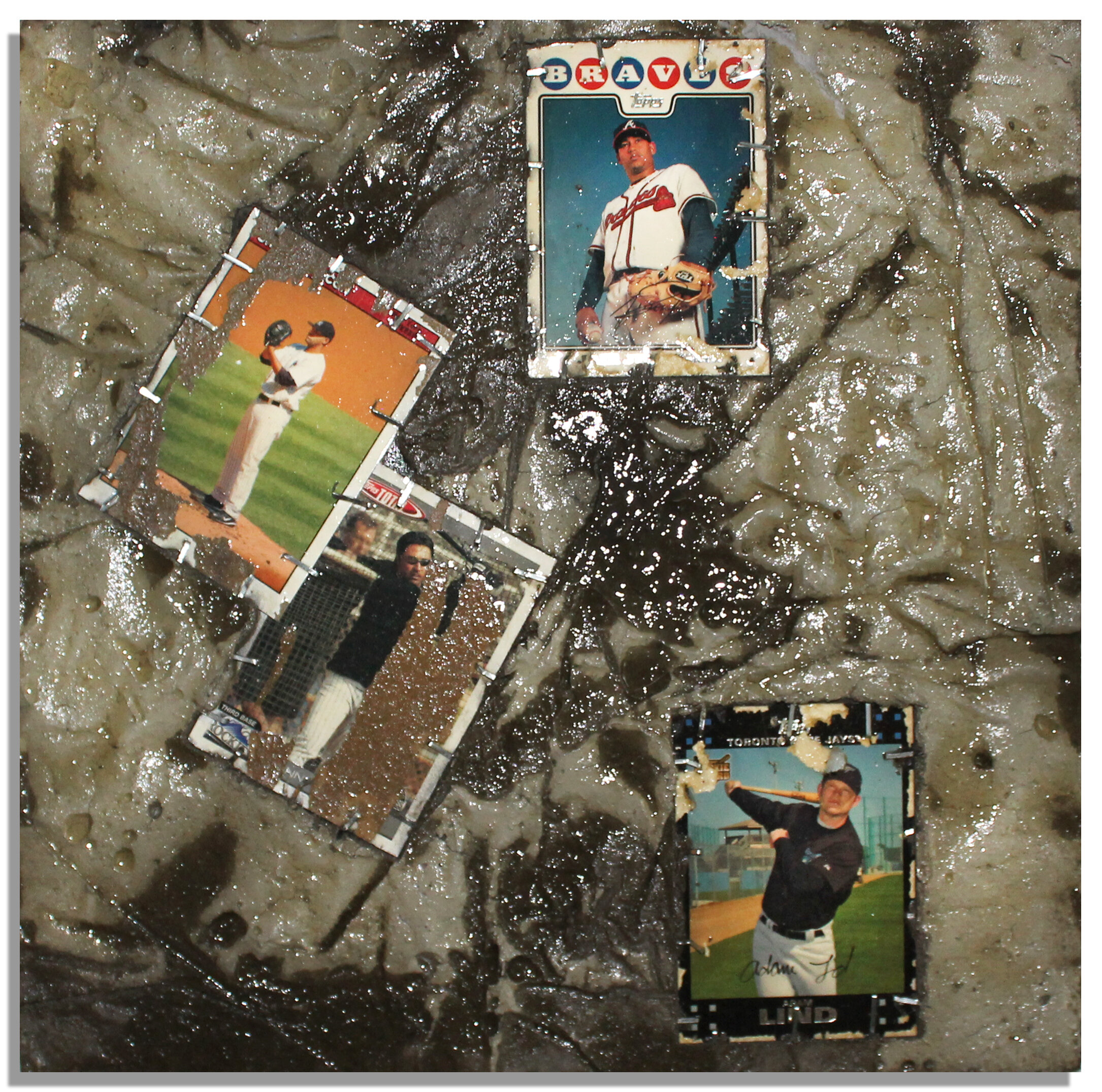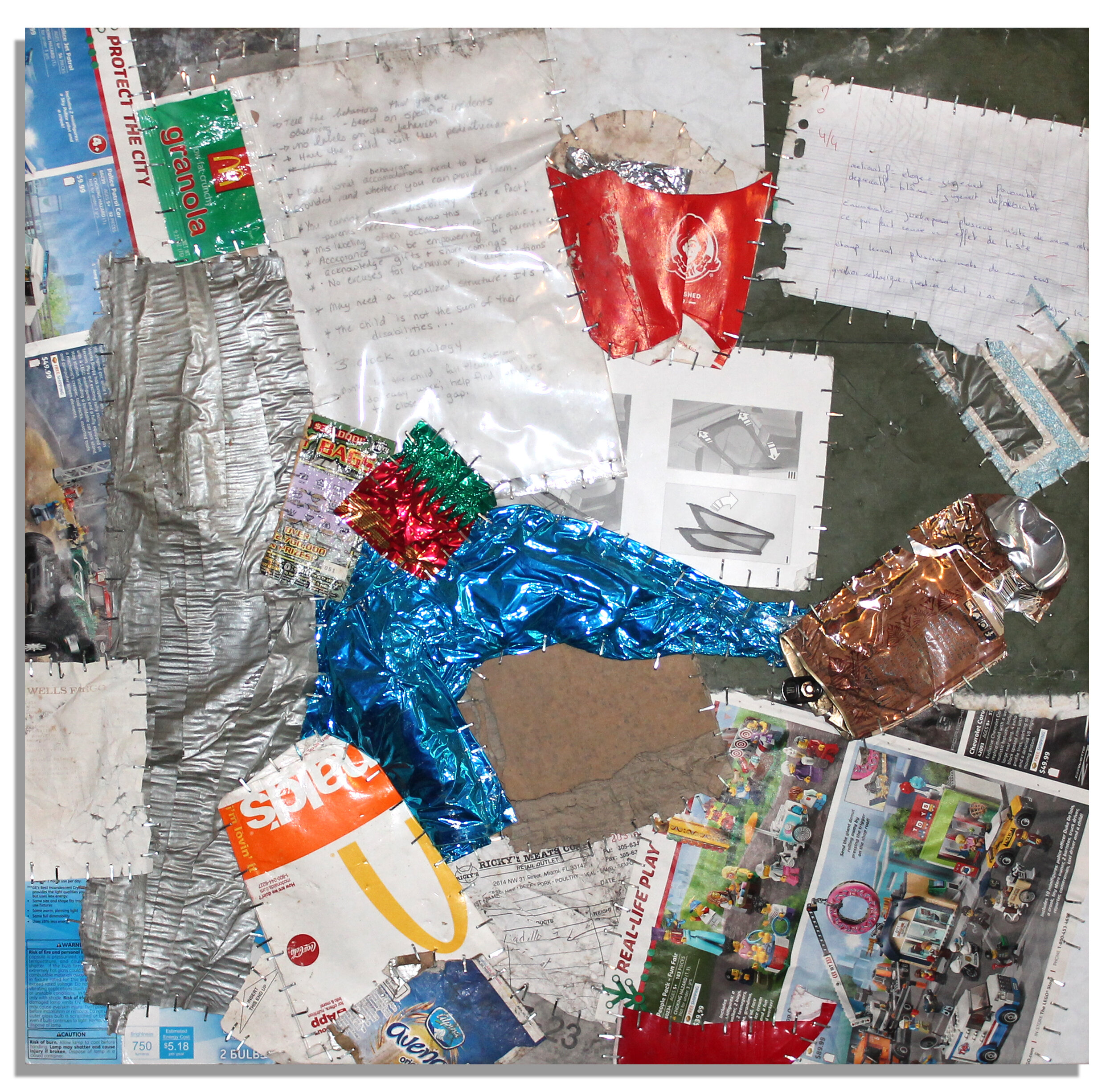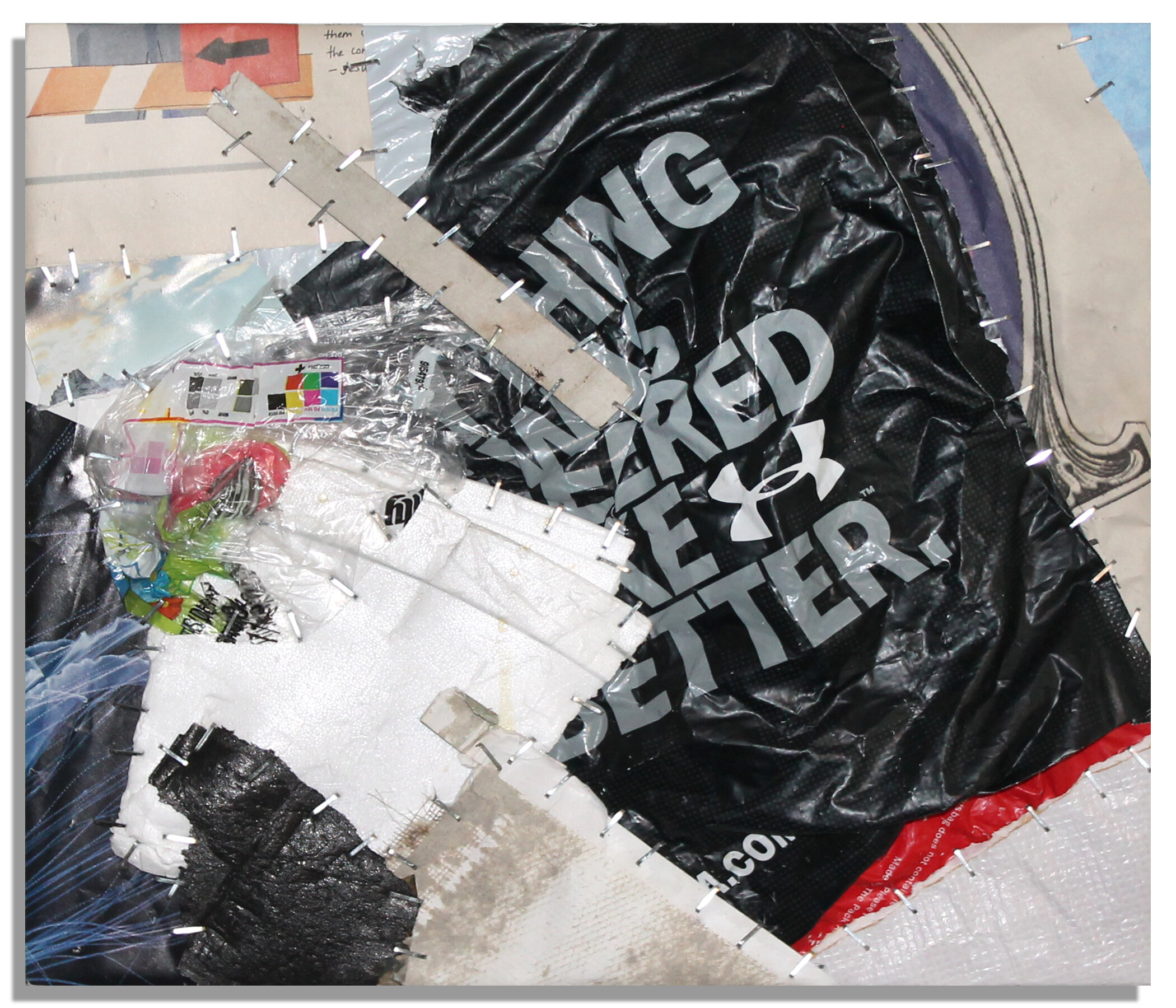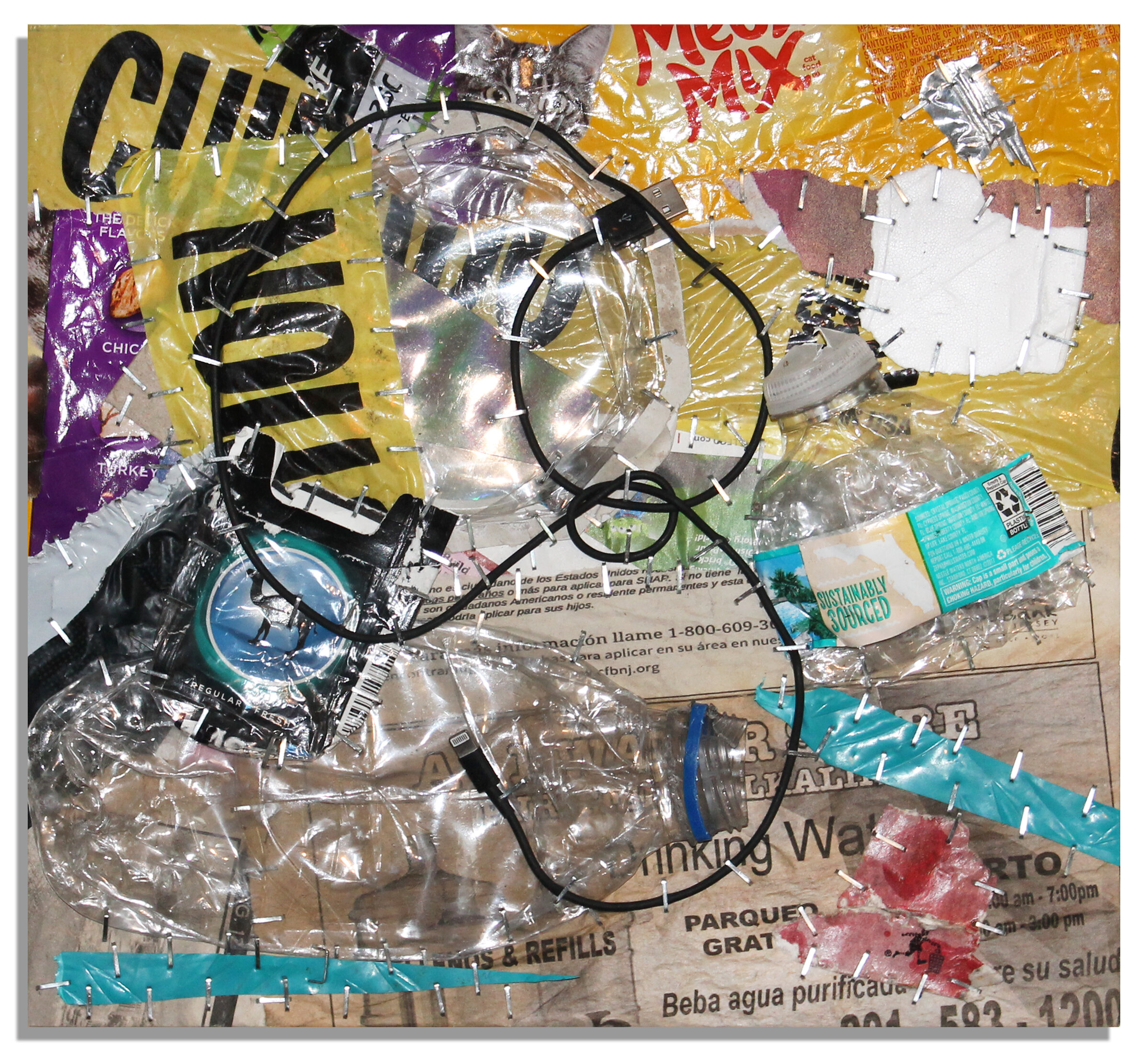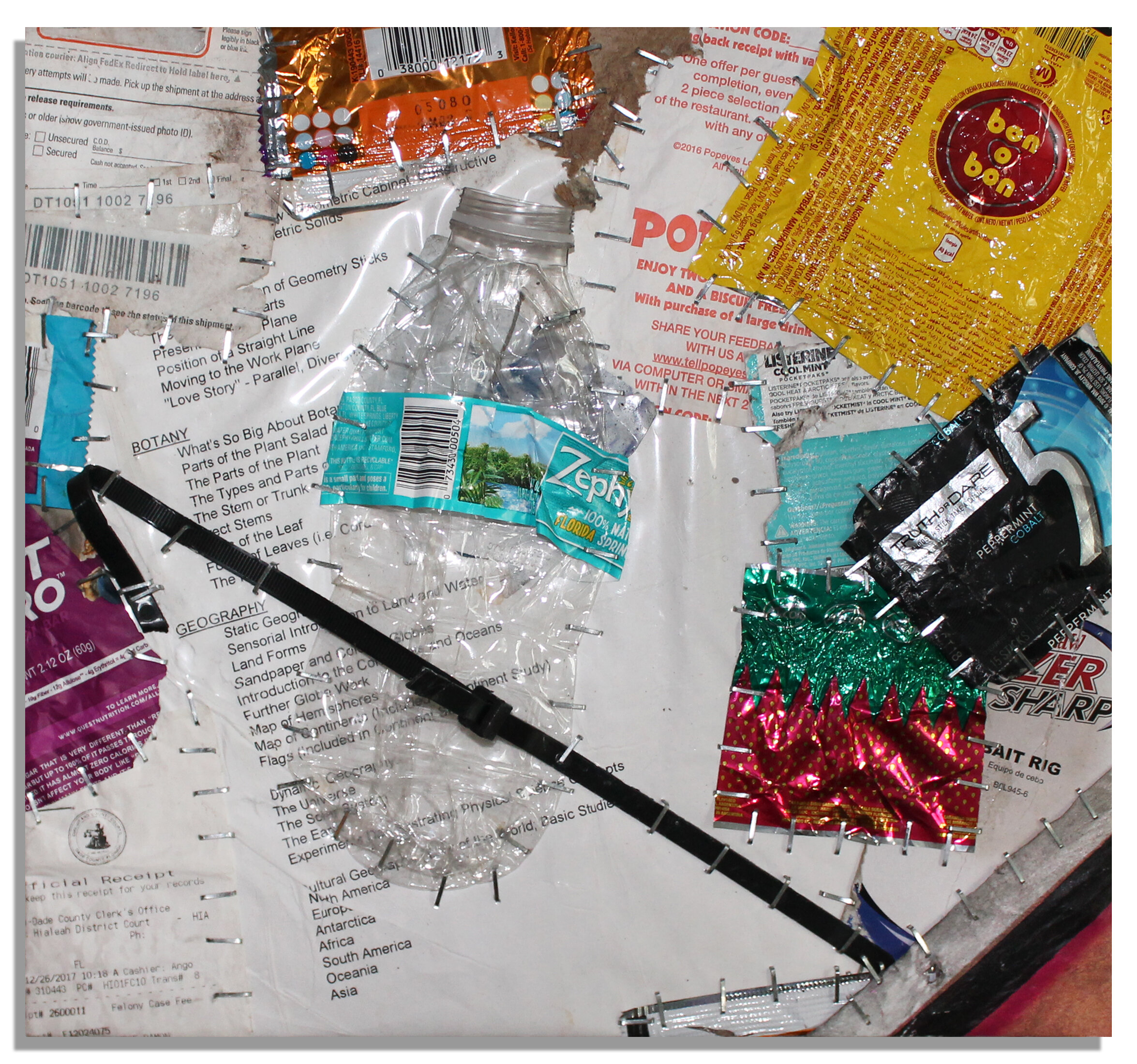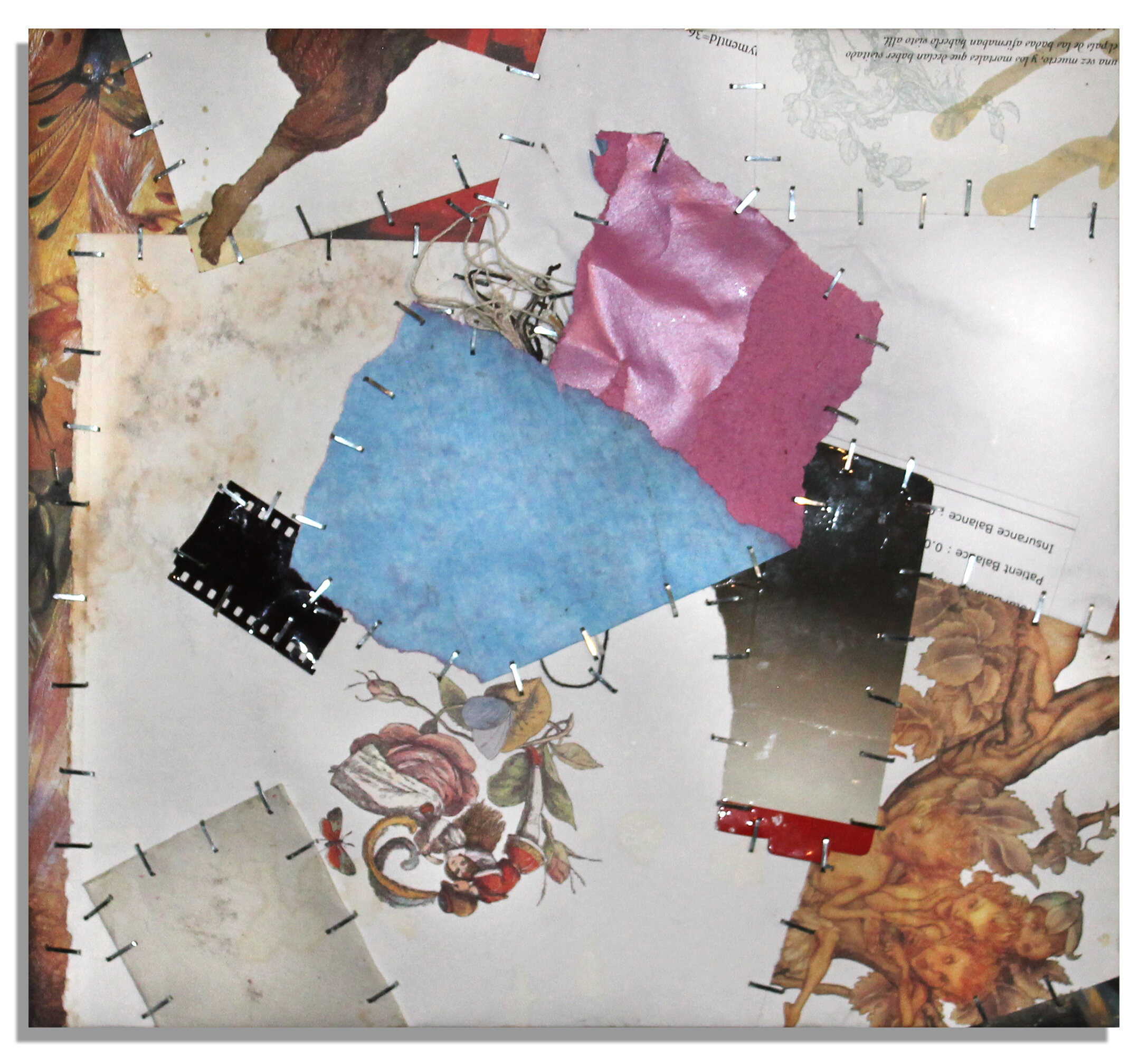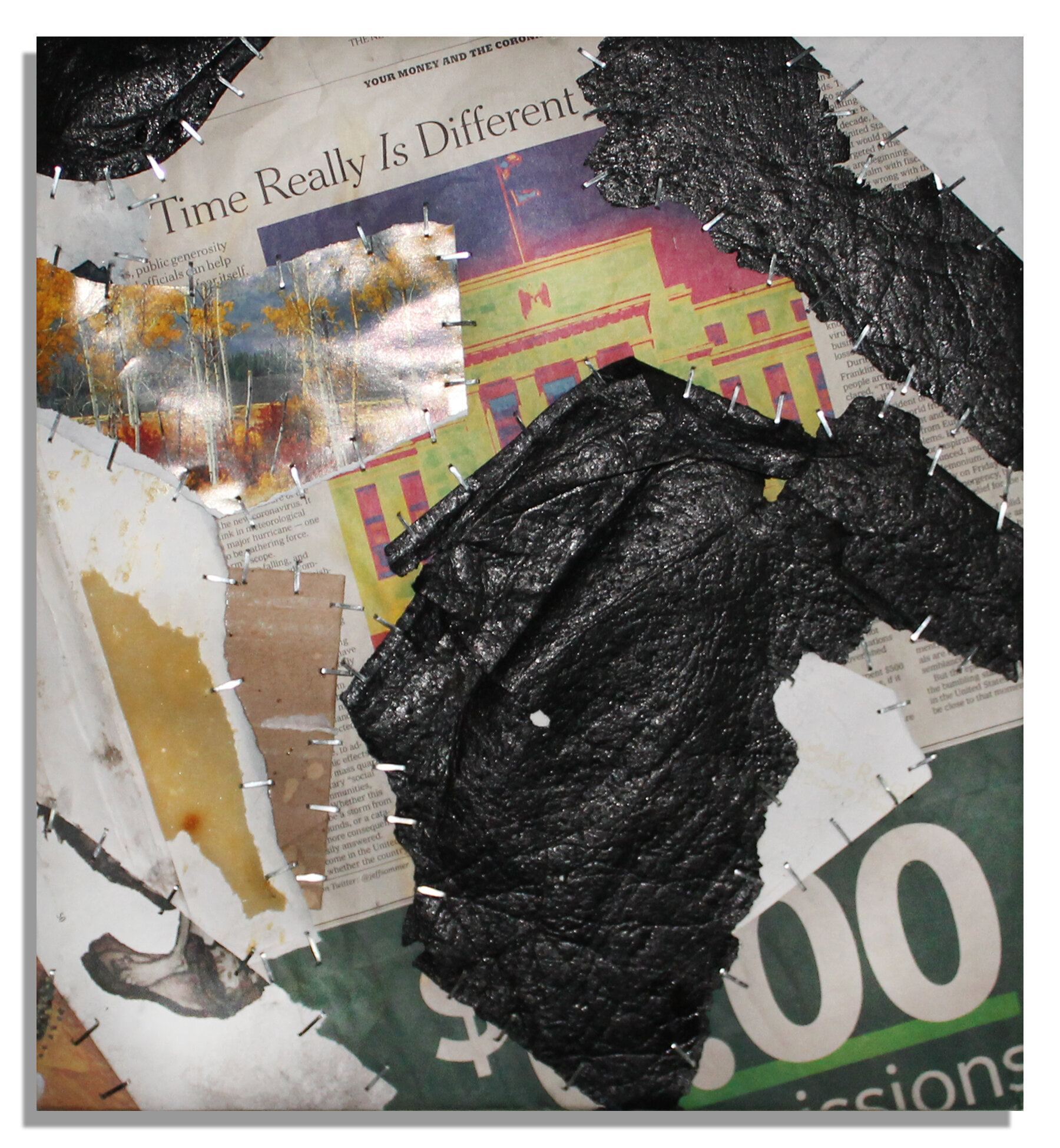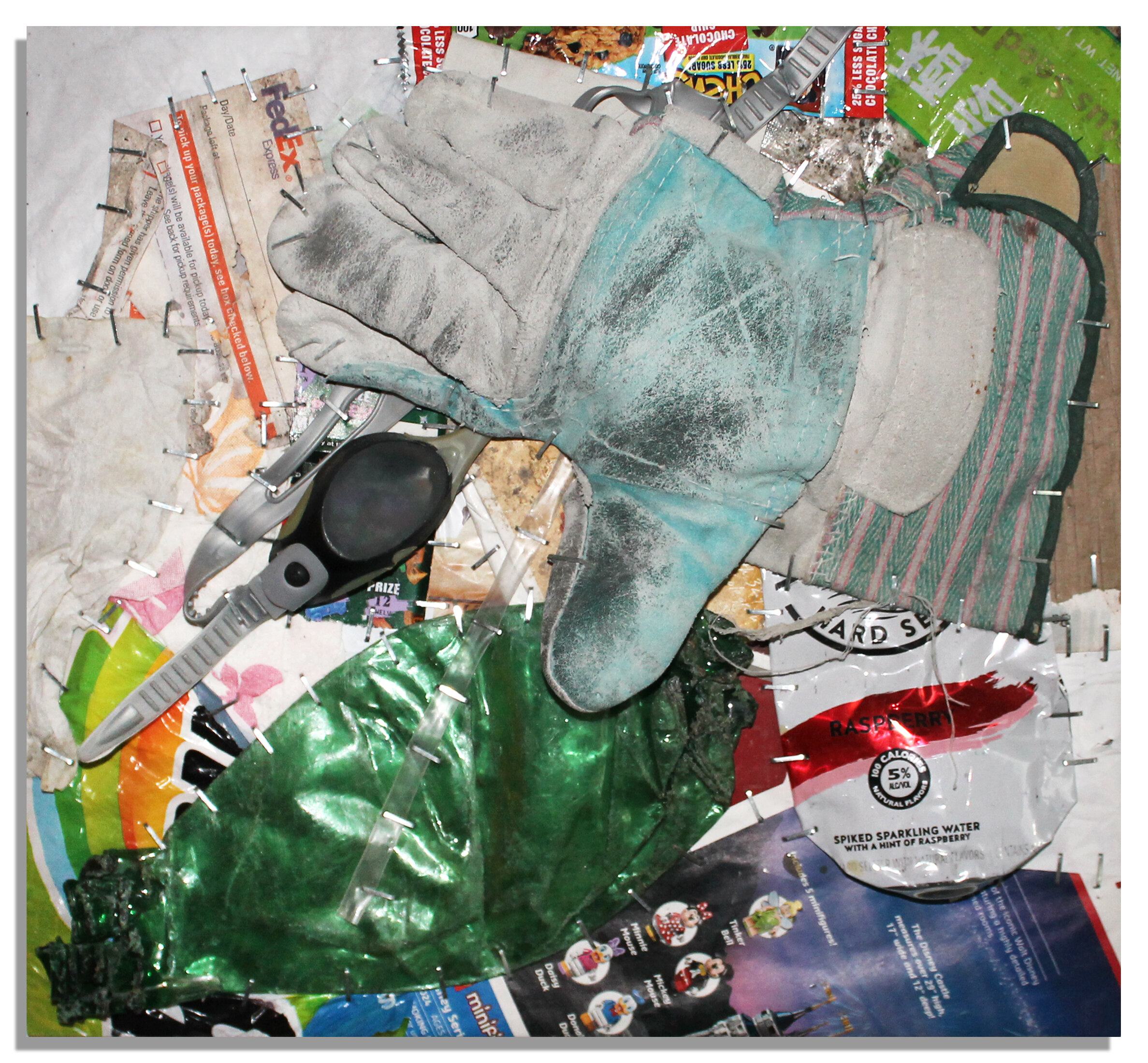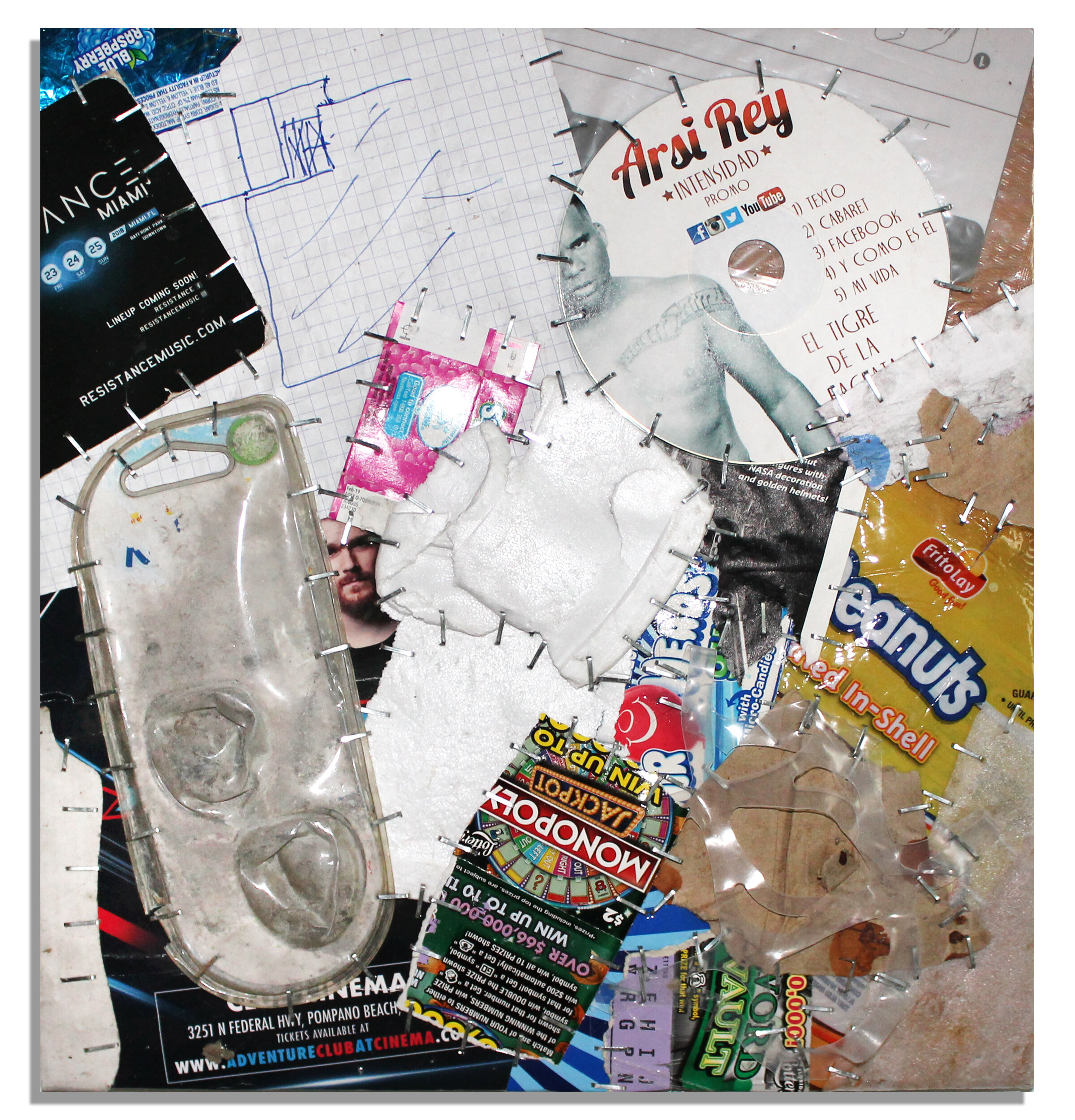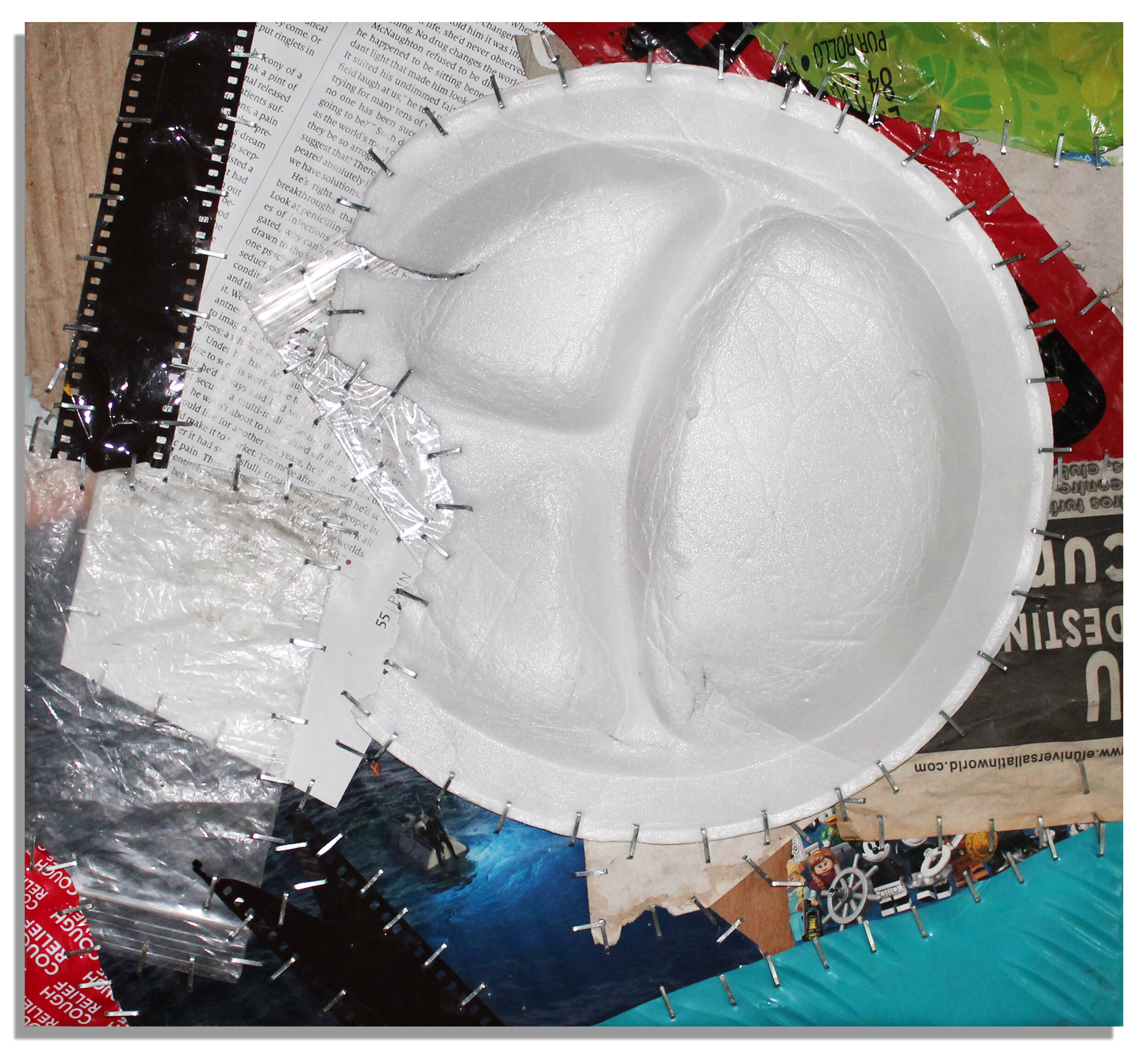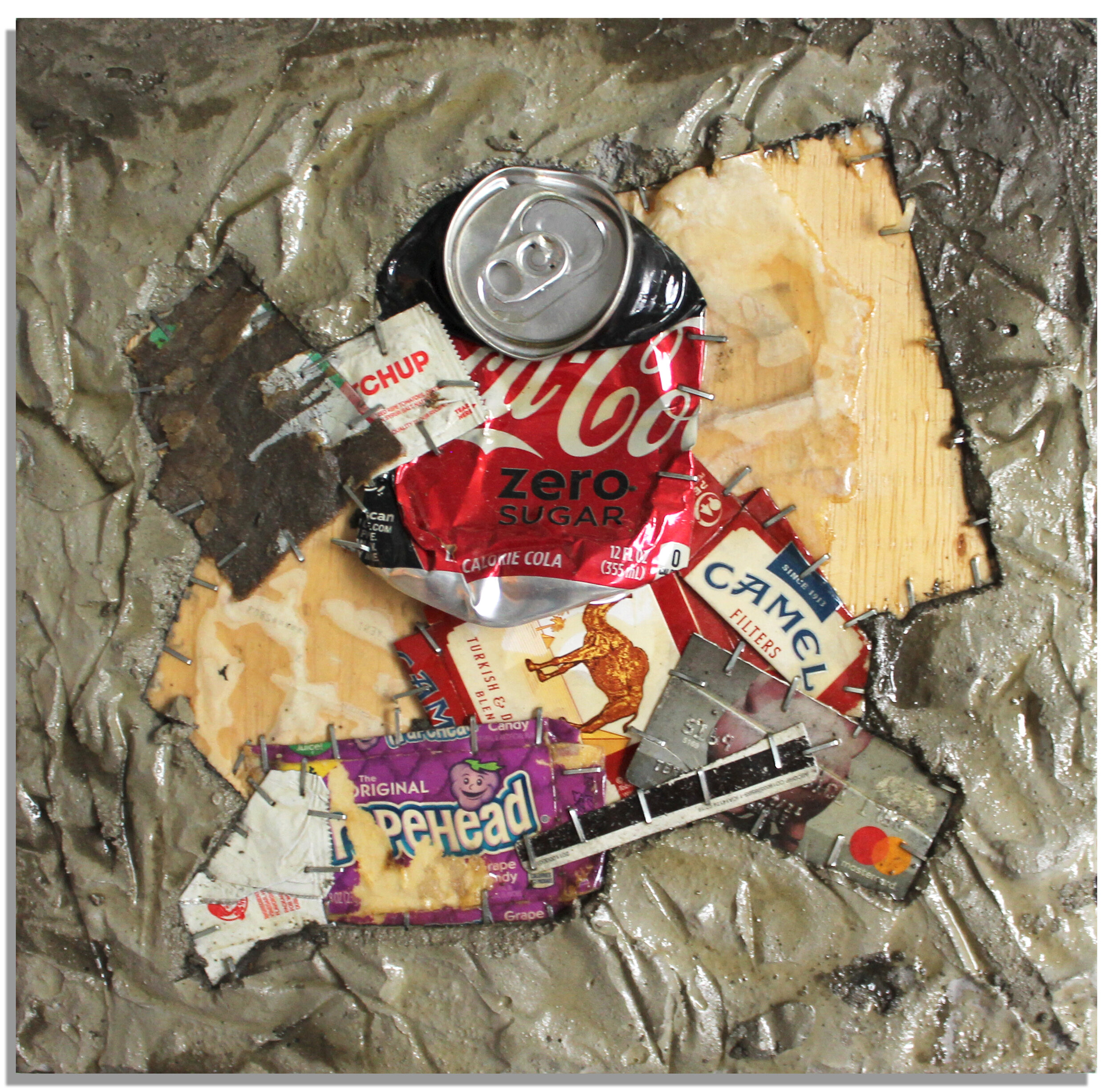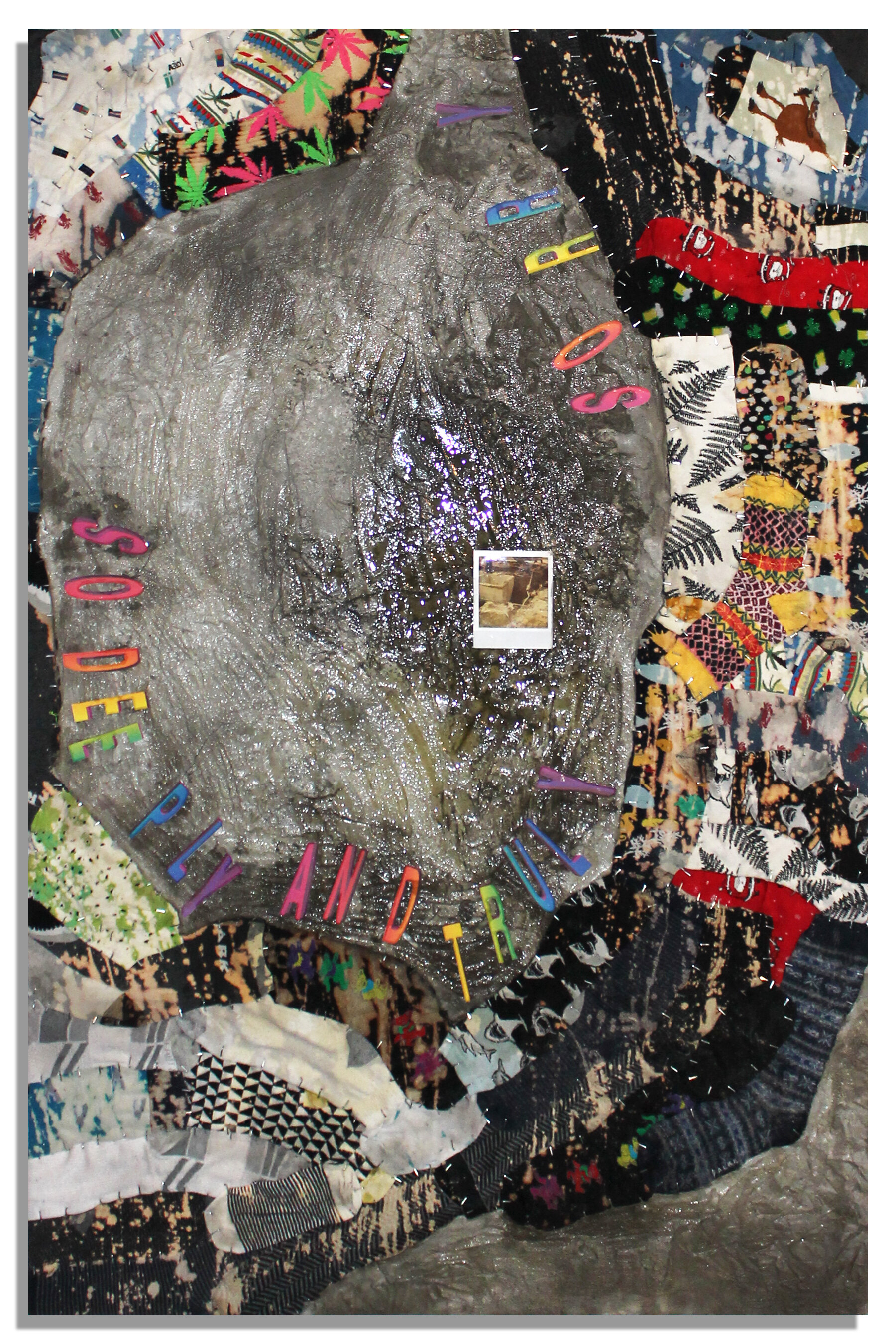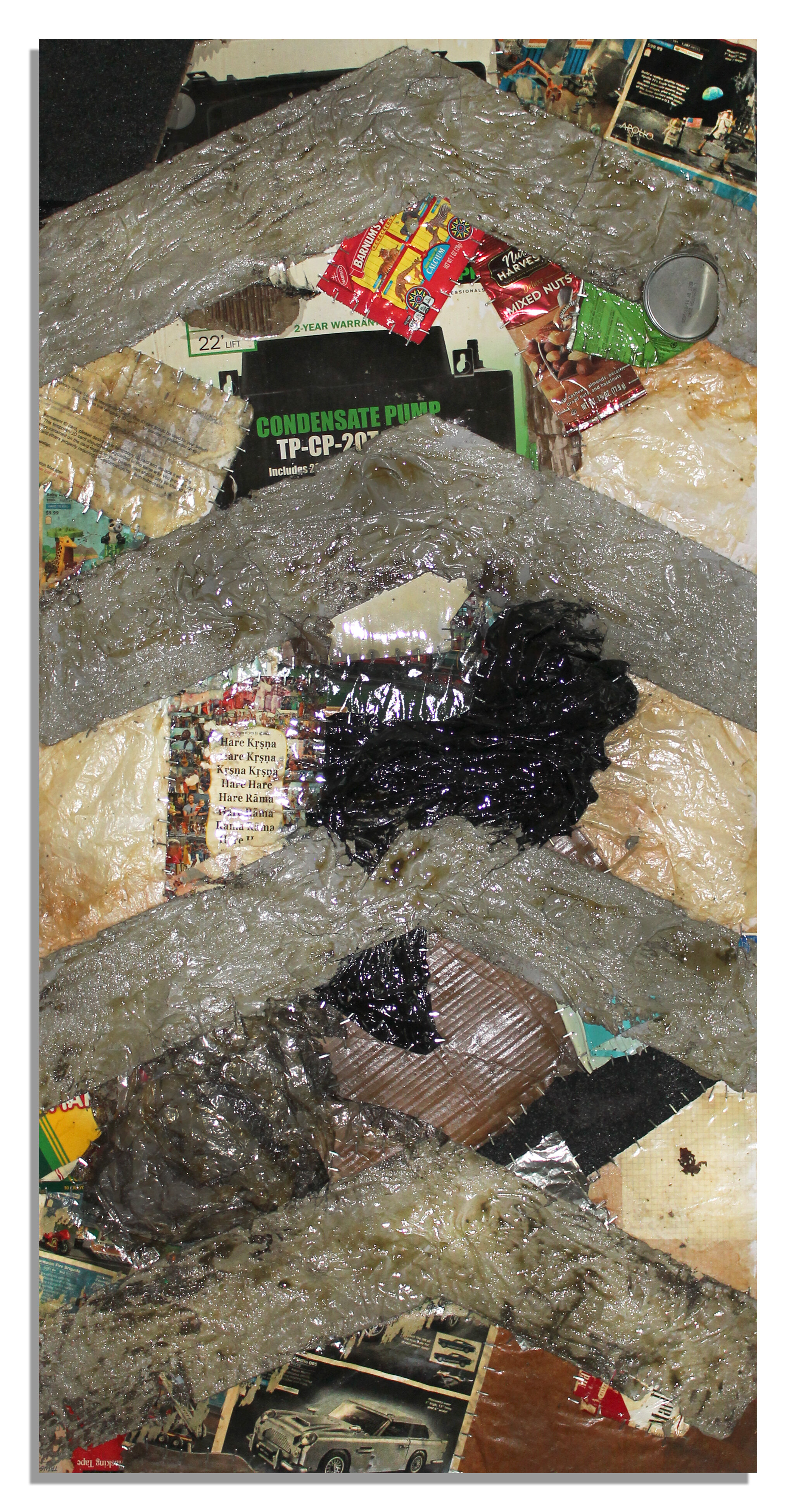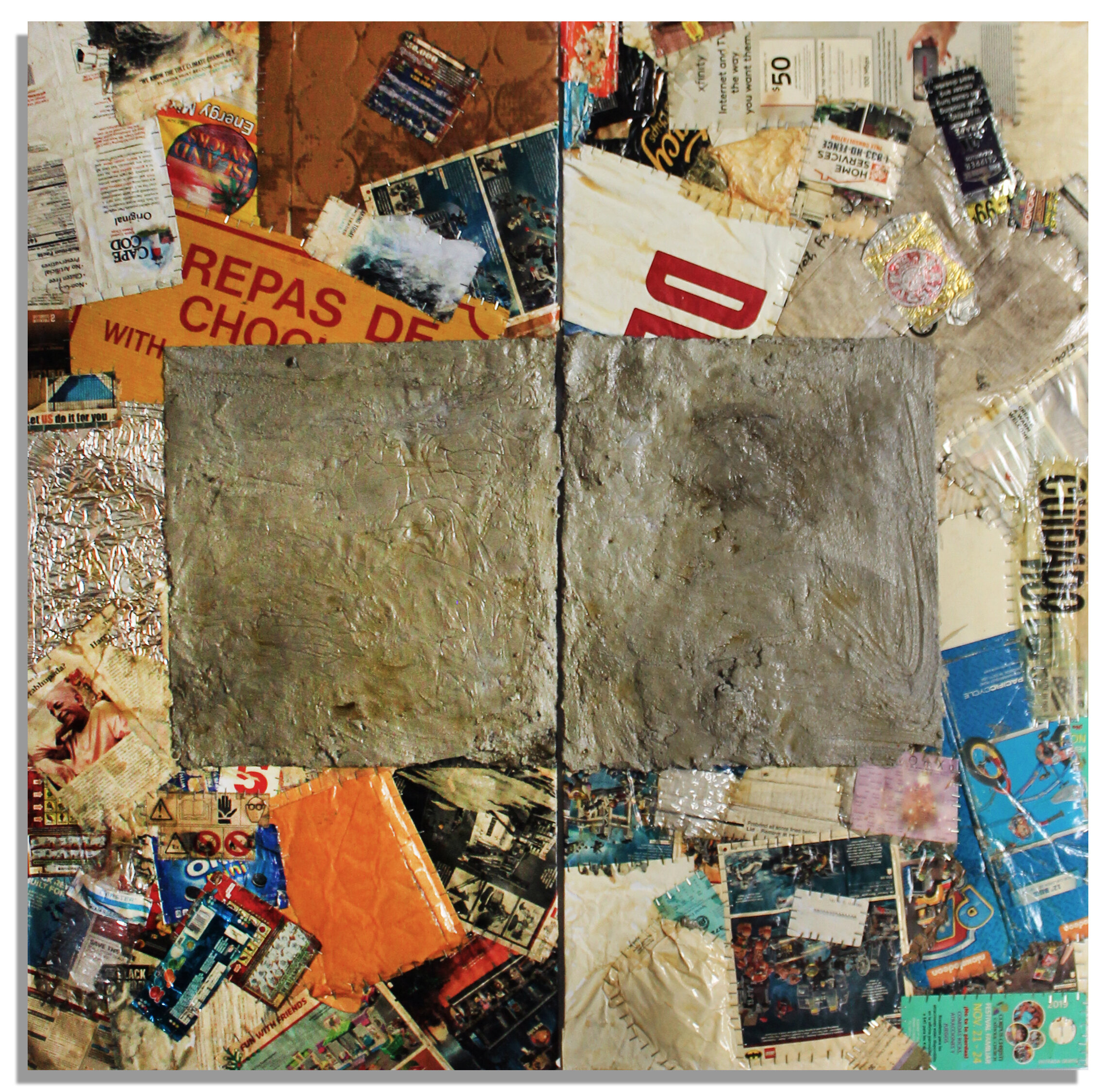R E G U R G I T A T I O N
As consumers, we exist within the context of the politics of waste. This work evaluates the perils posed by the single-use system: its intersectionality, its disproportional and at times random effects, and its lethal inevitability. It dissects these dangers by juxtaposing discarded remnants of the things we find so desirable with the industrial materials used to construct our civilizations, thereby combining the two most omnipresent elements of modern life.
Objects are plucked from their various urban environments and arranged by chance operation, mirroring the randomness of littering. Concrete and staples are used as homages to the streets from whence this detritus came and as references to the ubiquity of industrial materials. All elements used in these assemblages are toxic in nature and serve as reminders of the threat of environmental degradation. The resulting metaphor of regurgitation refers to both the act of expelling waste and the willfully ignorant repetition of this system.
Here, excess, being both objective and subjective in nature, cements itself as the most fitting allegory for humanity in its profound influence on our lives. We seek both our reflections and our idealizations in that which we ceaselessly create and consume, and through that consumption, usher in our destruction. In response, we must address the reality that we are all bound to the path of proliferation and to its catastrophic end.
